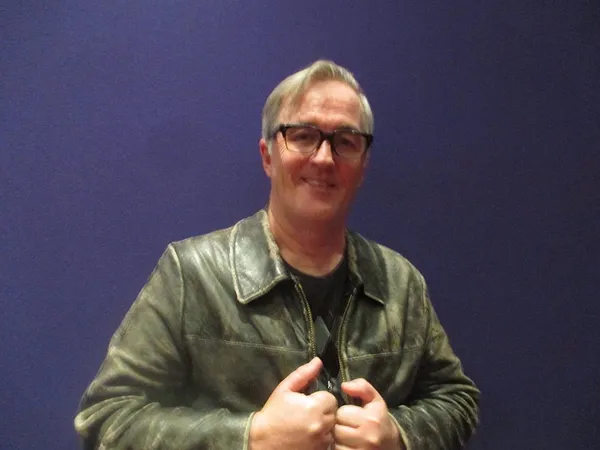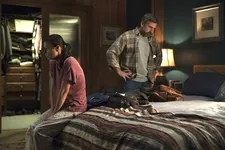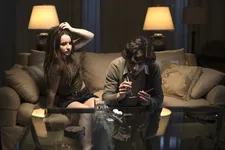In the final instalment of my conversation with Luke Davies on Beautiful Boy we discuss the family dynamics between the roles Steve Carell (David Sheff), Maura Tierney (Karen Barbour) and Amy Ryan (Vicki Sheff) play in the life of Timothée Chalamet (Nic Sheff), the "experimenting" done by Felix van Groeningen with his longtime editor Nico Leunen (Belgica, The Broken Circle Breakdown, The Misfortunates, With Friends Like These, Steve + Sky), and how the Oscar-nominated screenwriter (for his adaptation of Saroo Brierley's A Long Way Home for Garth Davis's Lion), enjoys dealing with parent-child relationships.
Luke Davies is an executive producer for Smokehouse Pictures' Catch-22, based on Joseph Heller's novel, starring George Clooney, Christopher Abbott, Kyle Chandler and Hugh Laurie. Luke also wrote the first episode of the six-part mini-series that will air in 2019.
Over breakfast on a windy morning on Central Park South, Luke and I looked into the different structures in the films of Felix van Groeningen, The Misfortunates being Paul Auster's favourite.
Anne-Katrin Titze: What you did with Lion structurally was that you split the story in half, into two chunks. With Beautiful Boy, there is also a past, but it's interwoven. It's a braid.
Luke Davies: Yes, a braid, that's really good. I might steal that. Lion is structurally very simple. Beautiful Boy is structurally quite dense and complex. It's not linear with flashbacks, it's more like Felix's thing. Big circles that kind of loop over each other. He did that in Broken Circle Breakdown.
And what he did was really amazing because the material of Broken Circle Breakdown was very haunted. By doing these kind of loops where you're not always sure where you are and you gradually piece it together, it makes it even more haunted. Therefore it makes it even more powerful.
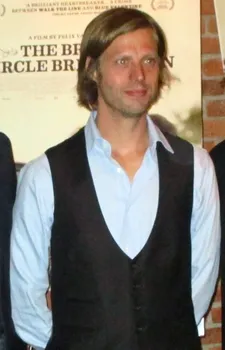 |
| Lion screenwriter Luke Davies on Felix Van Groeningen: "Beautiful Boy is structurally quite dense and complex. It's not linear with flashbacks, it's more like Felix's thing." Photo: Anne-Katrin Titze |
So in my first draft [of Beautiful Boy] it was kind of linear with flashbacks. Felix said "You can be bolder. You can try and be more radical with the time frames. Gradually the audience will learn where they are."
AKT: I don't think anyone will have trouble in this film realising what is the past and what is the present.
LD: It's true. It's clear. He [Felix van Groeningen] did a lot of experimenting in the edit [with Nico Leunen]. It wasn't just us co-writing the different drafts, in post-production he was experimenting all over the place. We always knew the ending, that this was the final scene.
AKT: The one we talked about before - the old man and the young man trading places?
LD: Exactly. The reversal. In the earlier drafts it had dialogue. The thing that kept changing was the beginning. We began 15 different ways. The way it begins now with only David in a room with the doctor whom you don't see, that's a discovery that Felix made in the edit.
AKT: The father-son relationship is central here. It was mother and son in Lion. The parent-child relationship is that something that lures you?
LD: It's something that I really enjoy. Because parent-child relationships are dramatically … Parent-child relationships in our real lives are rich and full of problems. So dramatically, in the world of fiction and cinema, they are also really interesting to explore. It wasn't deliberate, but it was a nice coincidence.
AKT: Speaking of parents, did you see Margarethe von Trotta's documentary Searching For Ingmar Bergman?
LD: No.
AKT: There is an interview with Daniel, one of his sons, and they discuss how Bergman his whole life wanted to be the son, the child. That's why he never could be a good father. I found that interpretation quite striking.
LD: Wow. That's interesting.
AKT: The children were competition - in being a child. All these dynamics, as you said, are fascinating in that relationship. The father in Beautiful Boy is, I would say for many people, extraordinary in how much he does, in how hard he is trying to help his son. People may wonder if a too-much of that played a role in the first place?
LD: What I love dramatically for David's role, Steve Carell's role, is that this guy who he is playing is high-achieving. He is used to success. He is used to solving problems. He had a long, illustrious career as a journalist. Still does. He was used to working things out and things going his way.
This movie is about that guy who comes up against this thing which doesn't operate according to the same rules. For the first time this alpha male who is a high achiever comes up against that thing that he not only can't defeat but he can't even understand.
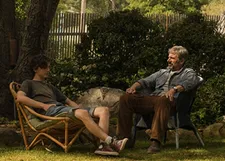 |
| Luke Davies on Nic (Timothée Chalamet) with his father David (Steve Carell): "This movie is about that guy who comes up against this thing which doesn't operate according to the same rules." |
AKT: Steve Carell plays this very well, the not understanding.
LD: Bewilderment! Bewilderment on the border of anger.
AKT: That's a good word.
LD: Rage at times, because he has no skills to deal with this thing that is more powerful than he is. Also ego. Why is this thing more powerful than me? How can I defeat this thing? What did I do wrong?
And that what-did-I-do-wrong thing runs through the three parents. Amy Ryan and Maura Tierney, mother and stepmother. I wish we had more for the women because they're amazing in the film. It's a shame they have smaller roles.
Read what Luke Davies had to say on Philip Seymour Hoffman, Anton Corbijn, Heath Ledger, Capote, and Candy connections, and a Beautiful Boy meeting.
Read what Luke Davies had to say on the screenplay and the circular structure of Felix van Groeningen's Beautiful Boy.











